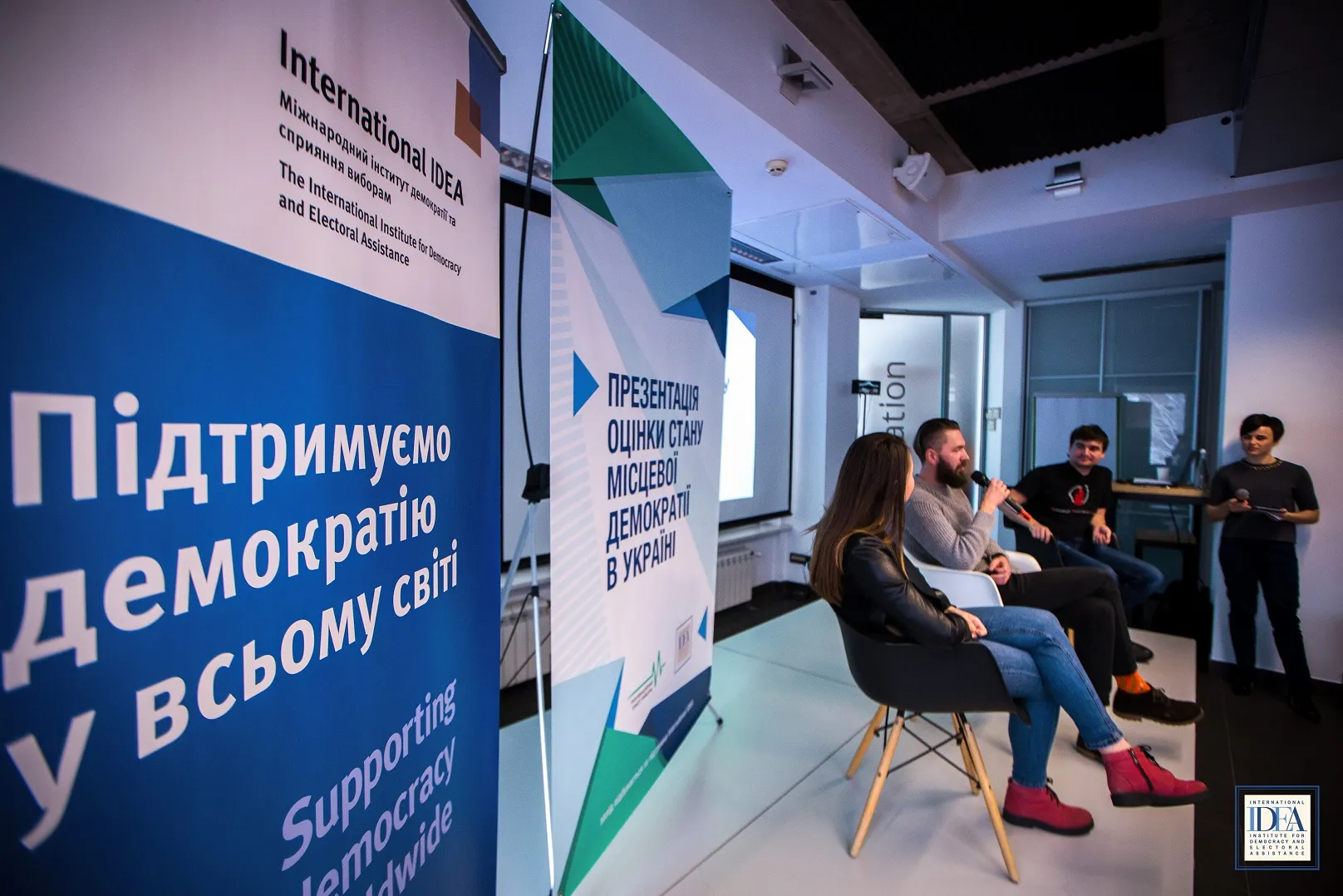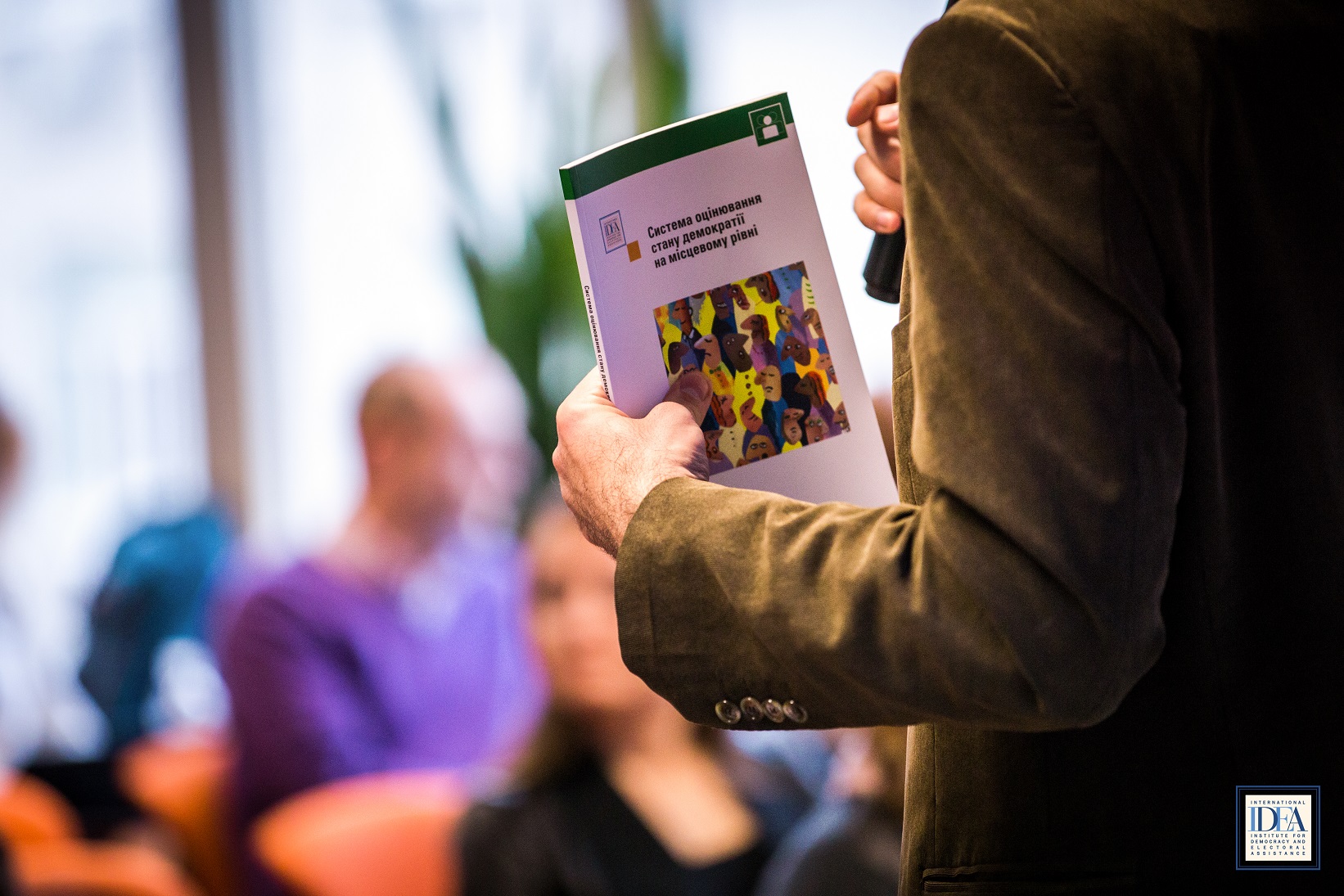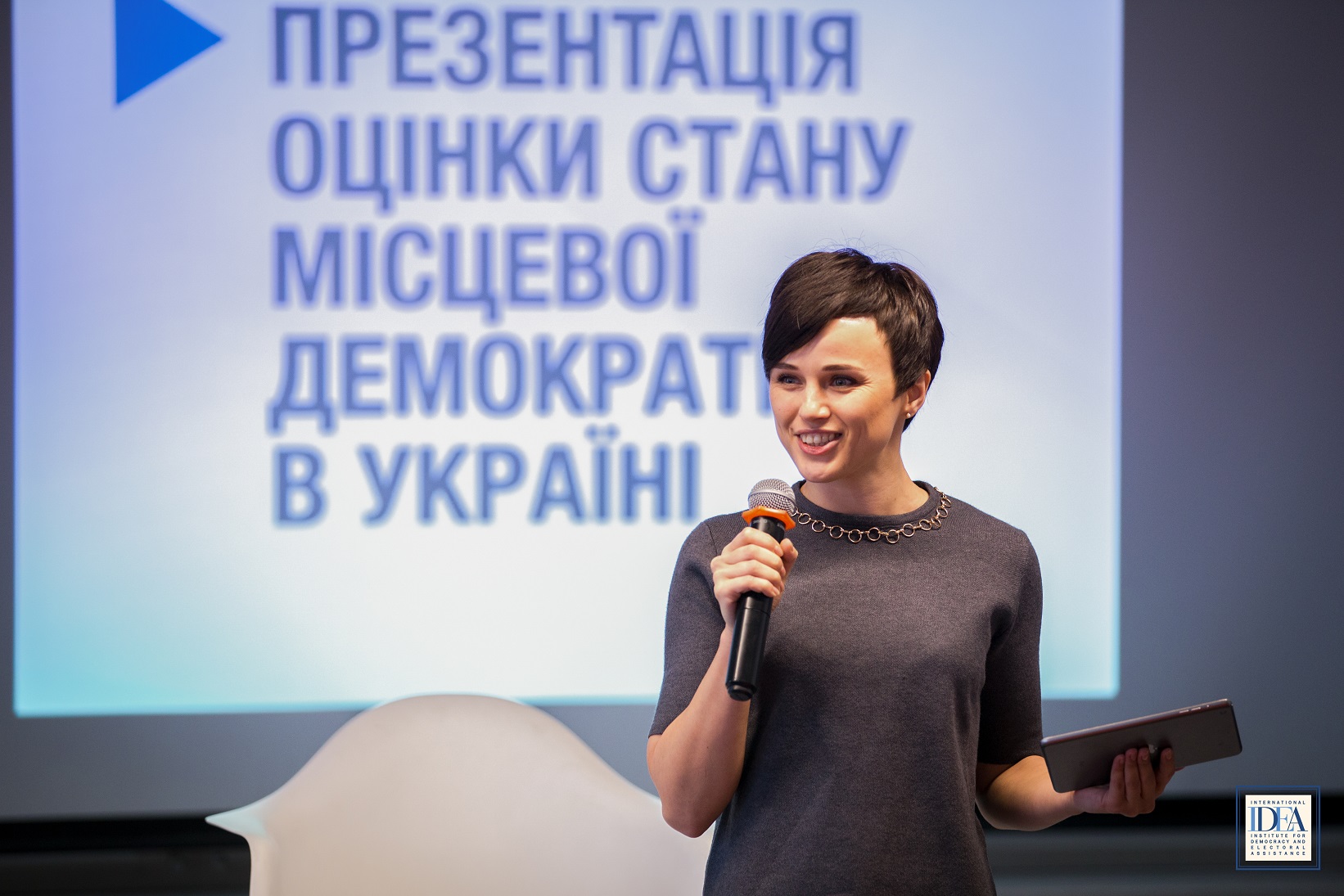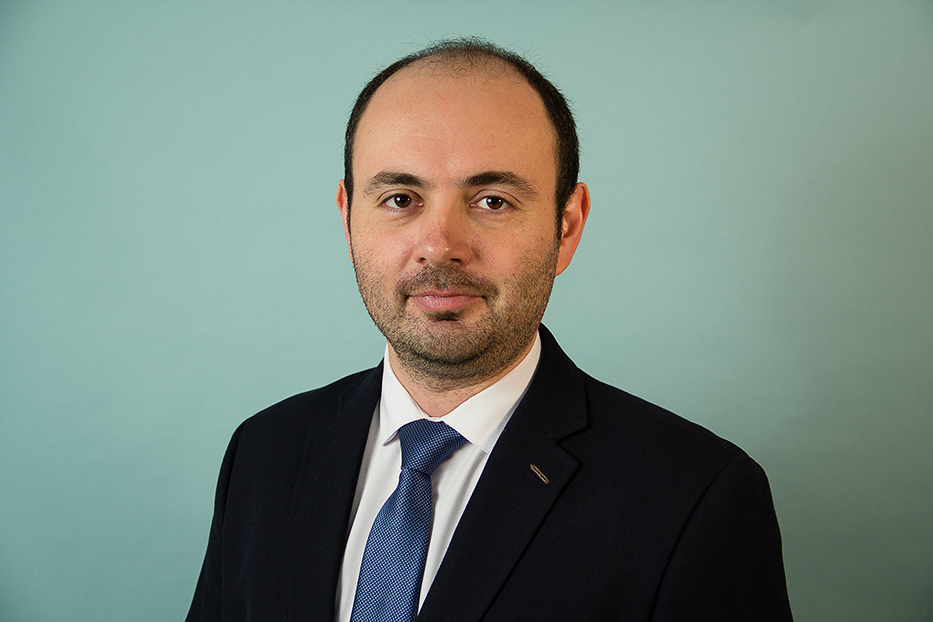International IDEA launches State of Local Democracy assessment for three Ukrainian cities

Since the Maidan revolution of 2014, Ukraine has embarked on an ambitious decentralisation process that will see more governance responsibilities be transferred to the local level in years to come. On 13 December therefore, International IDEA presented its ‘State of Local Democracy Assessment in Ukraine’.
The assessment, using International IDEA’s long-standing State of Local Democracy (SoLD) assessment framework, was undertaken by the Lab for Democratic Transformations (Chernivtsy) and focused on the Ukrainian cities of Chernivtsy, Mykolaev and Cherkasy. The assessment focused on recent cases of political polarization between mayors and local councils in these cities. The SoLD developed evidence-based recommendations on how such polarization can be avoided and how more collaborative, democratic and pluralistic local democracy can be fostered.
The event was co-hosted by International IDEA and the Reanimation Package of Reforms, and brought together practitioners and experts working in the field of strengthening local democracy and decentralization processes coming from various regions of Ukraine.
At the beginning of the event, representatives of regional NGO-coalitions from the cities of Bohuslav, Ternopil, Kropivnitsky and Vinnytsia shared the successes of the use of local democracy mechanisms. Maria Ishchenko, Head of the Secretariat of the Ternopil Center for Reforms, spoke about the successful implementation of budget hearings in Ternopil, which allowed citizens to influence the city budget and adjust expenditure items: "Now citizens can influence the fact that the city council will redistribute funds for those things that are really needed for the city."
Olena Humenna, the coordinator of the projects of the NGO "Result", listed the advocacy initiatives they were doing in Vinnytsia. Among them: making public information available on websites, implementing the "Ethical Code for Councilors", developing regulations for the regional council and drafting the decisions for the city council based on citizen initiatives.
Oleksandr Iakymenko, the International IDEA Programme Coordinator in Ukraine, presented the SoLD methodology and explained its advantages. He stressed that the methodology can be used by grassroot organizations and individuals who want to evaluate democracy in their city.

Olga Obersht, an analyst at the Laboratory for Democratic Transformation, noted that Chernivtsi, Cherkasy and Mykolaiv were selected for the assessment because of ongoing conflicts in the city councils between councilors and mayors, fragmentation of the deputy factions and the variability of executive committees. Olga emphasized that the purpose of the assessment was to show how the community perceives the mechanisms of democracy. The assessment was based on in-depth interviews with city councilors, active and ex-mayors as well as focus group discussions with both local democracy experts and the general public. The questionnaire was designed to understand how relevant values of representation, participation, transparency and solidarity are perceived for these three cities.
The assessment showed that citizens currently cannot make imperative decisions about their cities, as they are largely deprived of direct influence. To improve this, Olga Obersht emphasized the importance of re-evaluating democratic principles such as participation, representation and transparency in Ukrainian cities.
Andriy Kuchuran, Project Manager of the Laboratory for Democratic Transformation, highlighted some of the peculiarities of city councils and their members since Ukraine's independence. Describing the latest local elections, he noted: "The way Councilors were elected in 2015 drew attention to the fact that most Ukrainian voters voted for a person, not a political party."

The analysts presented recommendations to local self-government bodies to mitigate conflicts and political gridlocks. These included the ideas of rotating secretaries of the city council, allowing mayors to form a team of managers, and making strategic decisions more open to the general public.
Participants agree that to improve local democracy in Ukraine, greater public discussion is needed regarding the role of mayors and city councilors, their capabilities and duties.




